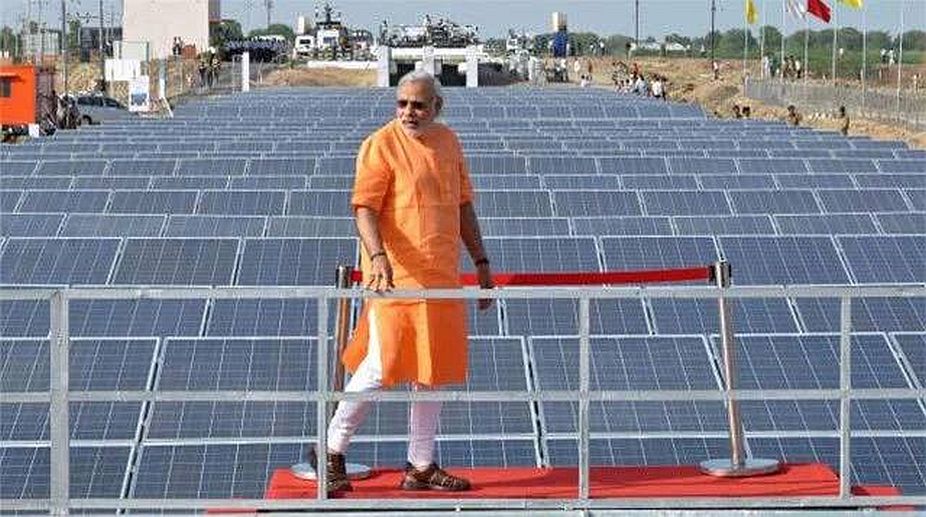Renewables are becoming the least cost option in India, Denmark, Egypt, Mexico, Peru and the United Arab Emirates, a global multi-stakeholder renewable energy policy network said on Wednesday.
It is said that record power capacity of 161 gigawatts (GW) added globally and that these countries saw renewable electricity being delivered at $0.05 per kilowatt-hour or less.
Advertisement
The renewable cost is well below equivalent costs for fossil fuel and nuclear generating capacity in each of these countries, said REN21, the global renewable energy policy multi-stakeholder network located at the United Nations Environment Programme (UNEP) in Paris.
It released its "Renewables 2017 Global Status Report", the most comprehensive annual overview of the state of renewable energy.
Global additions in installed renewable power capacity set new records last year, with 161 GW installed, increasing total global capacity by almost nine per cent over the previous year, to nearly 2,017 GW.
Solar PV accounted for around 47 per cent of the capacity added in 2016, followed by wind power at 34 per cent and hydropower at 15.5 per cent.
Officials said that solar prices in India hit a record low twice last month.
India finalised a new auction at the Bhadla solar park in Rajasthan on May 10 with the award of a power tariff at a record low Rs.2.62/kWh ($0.040/kWh), 12 per cent below the previous record low Rewa solar tariff awarded only just three months ago in Madhya Pradesh.
This new record only lasted two days with the latest 500MW solar auction coming in at Rs.2.44/kWh ($0.038/kWh), down yet another seven per cent.
This tender was also for projects at the Bhadla Phase IV solar park.
The REN21 report said Denmark and Germany last year successfully managed peaks of renewables electricity of 140 per cent and 86.3 per cent, respectively.
Global energy-related CO2 emissions from fossil fuels and industry remained stable for a third year in a row despite a three percent growth in the global economy and an increased demand for energy.
This can be attributed primarily to the decline of coal, but also to the growth in renewable energy capacity and to improvements in energy efficiency.
But the report forewarns that the energy transition is not happening fast enough to achieve the goals of the 2015 Paris Climate Agreement that aims to limit average global warming to 2 degrees Celsius by cutting greenhouse gases from burning fossil fuels.
The report says investments in renewable energy installations are down.
Although global investment in new renewable power and fuel capacity was roughly double that in fossil fuels, investments in new renewable energy installations were down 23 per cent compared to 2015.
Among developing and emerging market countries, renewable energy investment fell 30 per cent, to $116.6 billion, while that of developed countries fell 14 per cent to $125 billion.
Investment continues to be heavily focused on wind and solar PV, however all renewable energy technologies need to be deployed in order to keep global warming well below 2 degrees Celsius, said the report.
Globally, subsidies for fossil fuels and nuclear power continue to dramatically exceed those for renewable technologies, it added.









